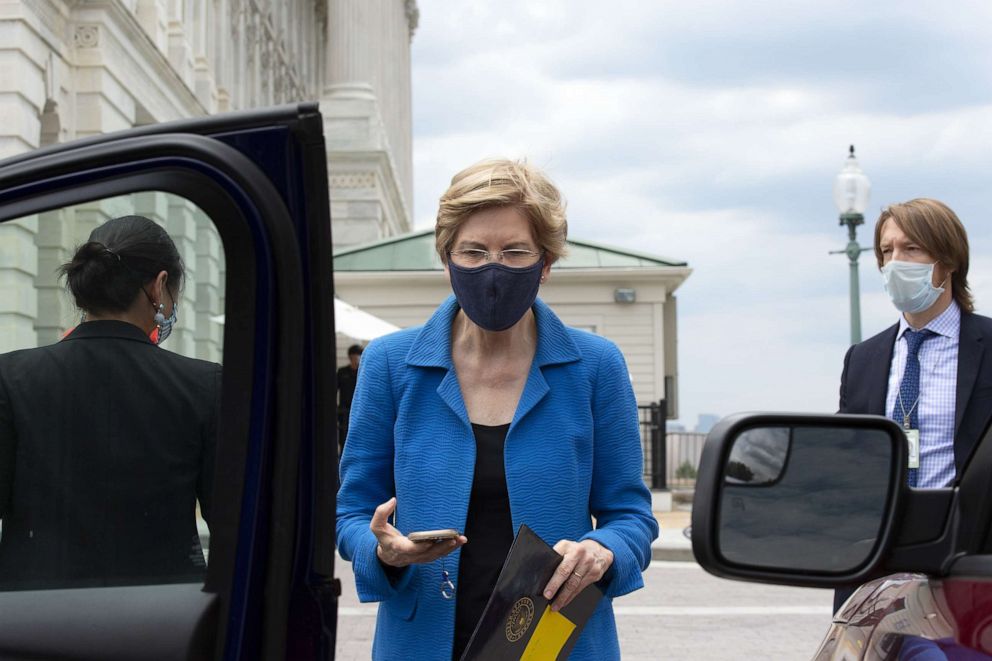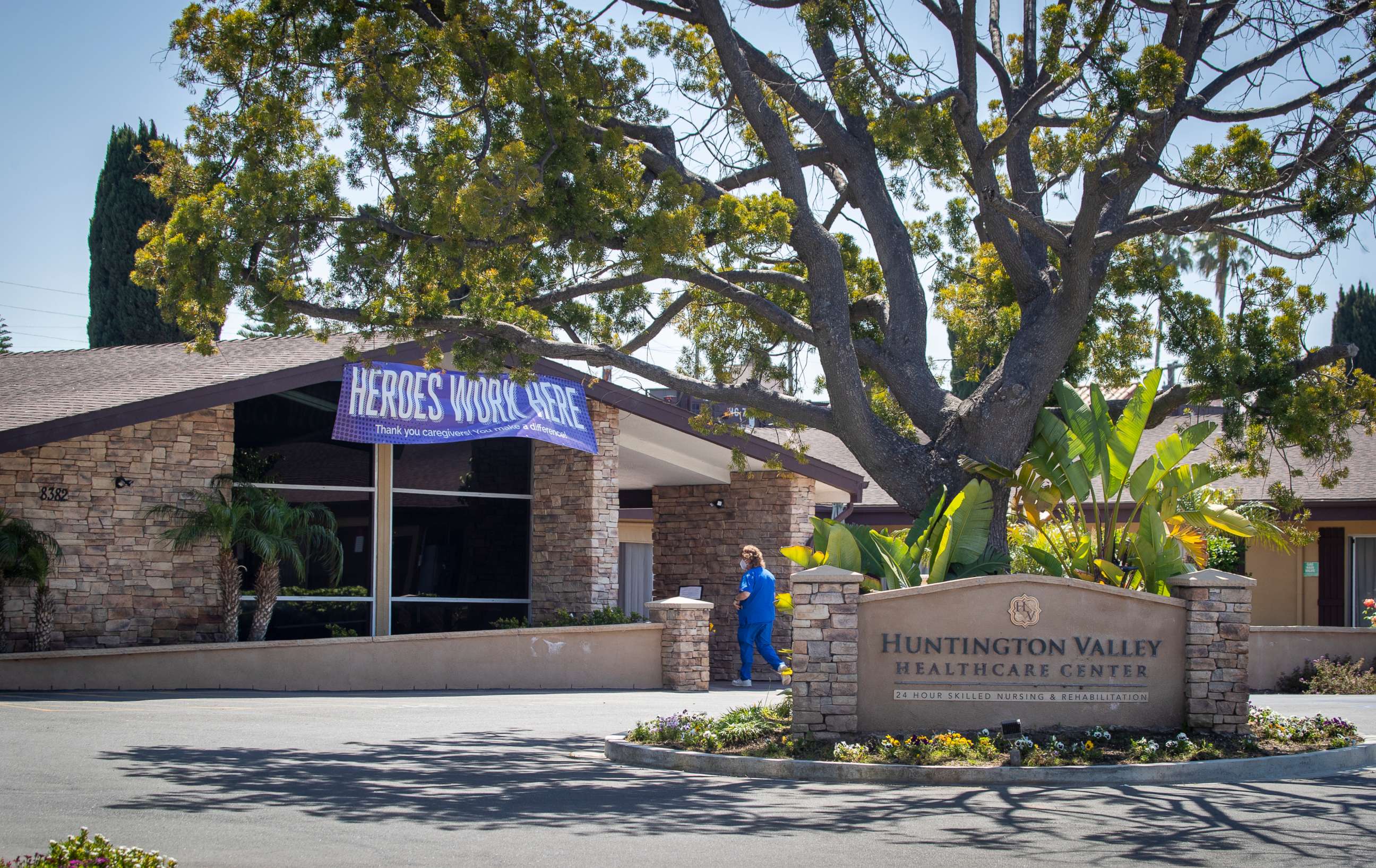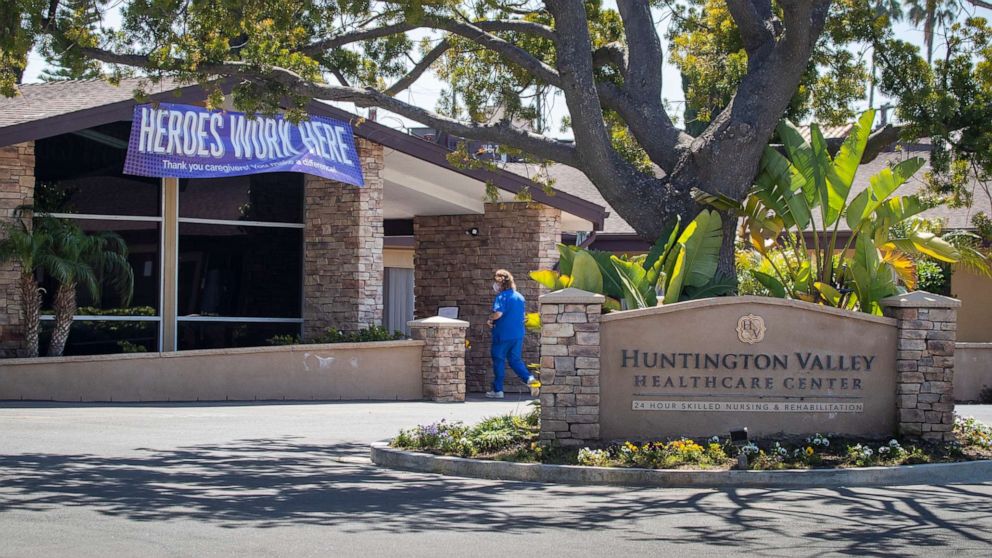7,000 killed in assisted living due to COVID-19, report finds
A new survey of assisted living facilities found that close to 7,000 seniors residing in these types of communities may have died from the novel coronavirus.
Because deaths in assisted living are not counted in federal records of nursing home deaths, the actual number is unknown.
The survey, conducted as part of an investigation led by Massachusetts Sens. Elizabeth Warren and Ed Markey, as well as Rep. Carolyn Maloney, D-N.Y., asked the nation's 11 largest assisted living facility operators about their experiences dealing with COVID-19, and discovered that 31% of seniors who contracted the coronavirus in an assisted living facility died from it. By applying that rate to all facilities nationwide, the survey determined close to 7,000 people have died in assisted living.
As of now, assisted living facilities have received no federal support to combat the virus. Nursing homes, however, have received significant federal support in light of the pandemic, to the tune of nearly $5 billion in economic aid and federal disaster shipments of much-needed protective equipment. Assisted living facilities have received no direct federal help.
Though nursing homes and assisted living facilities provide care to seniors, the two kinds of elder care are not identical. Unlike nursing homes, which typically cater to seniors with significant medical needs, assisted living facilities are retirement communities that serve elderly residents with varying degrees of independence, with some offering graduated care. There are about 1.4 million Americans in nursing homes, and about 1 million who reside in assisted living facilities, according to industry advocates.
But while nursing homes are regulated by the federal government and often funded, at least in part by Medicaid, assisted living facilities are regulated largely by the states and localities and are generally funded privately. Protective measures for nursing homes introduced by the Centers for Medicare and Medicaid do not apply to assisted living facilities, nor does the surge of federal aid available to nursing homes.

The discrepancy between the two types of facilities has caught the attention of lawmakers, who argue more must be done for vulnerable seniors.
"We are simply not doing enough to protect our seniors or workers in assisted living homes from this deadly virus," Markey said in a statement. "This report confirms that, just like nursing homes, assisted living facilities present significant risks for coronavirus infection and outbreaks of COVID-19."
Assisted living facilities are also not currently required to report their cases or fatalities to federal officials and, according to the report, none of the surveyed providers have reported these deaths. That means that the thousands of deaths documented by providers as part of the congressional investigation are not reflected in the over 30,000 reported nursing home deaths already being tallied by the Centers for Medicare and Medicaid.
Contacted by ABC News for a previous story, the agency stated that they do not have authority over assisted living facilities as they are not federally regulated.
Warren and Markey plan to introduce legislation in the Senate on Thursday that, if passed, would condition any future coronavirus relief funding for assisted living on facilities reporting their cases to state, local and federal officials. A similar piece of legislation is being introduced by Maloney in the House.
"Assisted living centers are facing a COVID-19 crisis that is almost as bad as the crisis in nursing homes -- but without being subject to the same regulations or oversight, and with no help from the federal government," Warren said. "Policymakers, public health officials, and assisted living facility residents and their families need to know this information so they can make the right choices about how to save lives during the COVID-19 pandemic."
The bill would require assisted living facilities to notify federal state and local officials, as well as loved ones, if there is a confirmed COVID-19 case in an assisted living facility and would apply all future reporting requirements for nursing homes to assisted living facilities.

For months, assisted living advocates have called on the federal government to do more for these types of facilities.
LeadingAge, an association of nonprofit providers of aging services that includes many nursing homes and assisted living communities sent a letter to Congress in May urging lawmakers to include funds for assisted living homes in any future coronavirus relief legislation.
"We implore you to take immediate action," Katie Smith Sloan, the president and CEO of LeadingAge wrote. "Our communities and older adults cannot wait for further relief."
In a statement in support of the senators' legislation, Dr. Georges Benjamin, the executive director of the American Public Health Association, an organization for public health professionals, said the bill would hold assisted living facilities to a higher standard.
"We know that older adults face a higher risk from COVID-19; we also know that the confined, congregate setting of these facilities puts those adults and the workers who support them at a higher risk of transmission," Benjamin said. "To protect these individuals and limit the community spread stemming from these facilities, it's essential that we exercise additional oversight in how these facilities report COVID-19 data."
It is not yet clear if the bill will gain support with Republicans, though lawmakers on both sides of the aisle have advocated that more be done for seniors.
In May, Sen. Susan Collins, R-Maine, who chairs the Senate Aging Committee, told ABC News she is "focused on helping to protect the health of vulnerable seniors in long-term care facilities during this pandemic."
What to know about the coronavirus:
- How it started and how to protect yourself: Coronavirus explained
- What to do if you have symptoms: Coronavirus symptoms
- Tracking the spread in the U.S. and worldwide: Coronavirus map
Tune into ABC at 1 p.m. ET and ABC News Live at 4 p.m. ET every weekday for special coverage of the novel coronavirus with the full ABC News team, including the latest news, context and analysis.




